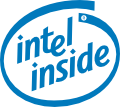Supervised Consumption Sites (SCSs) provide a space for those afflicted with addictions to safely consume drugs in a clean and supervised environment. This is evidence-based harm reduction in action, as research statistics clearly suggest that supervised sites, such as safe injection sites and safe consumption sites, correspond with lower overdose mortality and a significant reduction in emergency service calls for treating overdoses. Additionally, these sites can serve as a first port of call for recovery services, so why the backlash?
A recent article gives insight into the concerns that many communities across the country may share, such as the proximity of supervised inhalation sites to local businesses, schools, and senior care facilities. Concerned citizens in the community of Nelson BC are calling for a “pause on all future expansion [of overdose prevention services]” due to perceived safety concerns, despite no evidence of an increase in crime surrounding SCSs according to a peer reviewed article published in the Harm Reduction Journal.
We at SMRT1 have discussed at length, both in-depth with our industry partners in Healthcare, and extensively with our stakeholders, about the value and purpose of our Harm Reduction Vending machines, many of which are located at community based organizations operating SCSs in required locations across Canada. Although we seriously take into consideration the concerns of the towns and cities we operate in, it is always realized that SCSs can and will only exist if there is a dire need in the communities they serve.
“We’re fighting a public health emergency and many of the communities we enter are struggling to meet the demand for harm reduction services. What we’re providing is a convenient solution to an underfunded and overwhelmed system trying to cope with an accelerating problem” – Brad Pommen, CEO and President of SMRT1 Technologies
Furthermore, our smart vending machines for harm reduction, which we refer to as our SMRT1 Health PODs, have the ability to securely collect anonymous interaction data*; critical usage data that can improve the efficiency and service on the front lines of the opioid epidemic. Our hope is to deploy enough machines across Canada and the US to collect enough real-time data to support the evidence of what we already know, Harm Reduction Services, such as Supervised Consumption Services, saves lives.
If you’d like to discuss how a SMRT1 Health solution can support your community, please contact sales@smrt1.ca.



